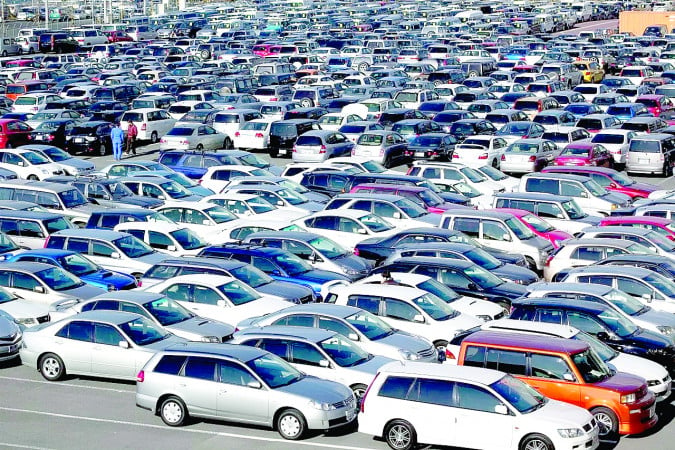Cost of imported cars to rise further as new taxes take effect

Potential car buyers will be hit hard by Kenya’s decision to raise duty on motor vehicles under the East African Community – EAC common external tariff, in a move that will force them to spend more to motorize their dream.
Kenyan car dealers were last week hit by a 35 per cent import duty after the EAC approved a surprise application by Kenya’s top leadership to review upwards the import levies from 25 per cent, a – 10 per cent adjustment rate which has since seen a sharp increase in the cost of imported cars.
Effectively, this means that vehicles imported into the country will now fetch a higher price locally by an extra Sh100,000 for an automobile originally being imported at Sh1 million for instance.
Meaning an import buyer will purchase the same car at an average price of Sh1.1 million or more – before selling it at an even higher price to the local buyer.
It also means that the same car price will now be 10 per cent cheaper in regional markets like Uganda and Rwanda which are also EAC member states.
Ordinarily, a change in import duty impacts the excise and value-added tax (VAT) charges as the value is compounded for taxation purposes, including insurance and freight (CIF) charges as well as import declaration fees and railway development levy which are charged separately for the customs value.
At the current market price of a popular car like Toyota’s Vitz goes for about Sh1.3 million, if the additional 10 per cent is effected, that price automatically climbs to about Sh1.41 million.
Similarly, a local buyer keen on a Nissan Note model which was being sold locally (at car yard prices) at an average of Sh950,000, will now sell at Sh95,000 more at Sh1.045 million.
Toyota’s Harrier– another popular car brand among Kenyan motorists which was until recently selling at an average price of Sh3 million, will now fetch in excess of Sh400,000 more with the new policy.
In a telephone interview Thursday, Charles Munyori, the secretary general of the Kenya Auto Bazaar Association, a lobbying body for second-hand car dealers, said the new move will not only see a shrinkage in the volume of cars being imported into the country but also push some importers out of the business.
Kenya imports an average of between 80,000 and 100,000 fully built vehicles every year and has an installed vehicle assembly capacity of slightly over 30,000 units – with the latter’s capacity believed to be held back by a deliberate delay by the government to implement a national automotive policy whose creation was intended to localize its new cars.
“It will be left for those with the money. Assuming an importer who brought in 10 units before the new measure kicked in, based on that impact they will be forced to reduce that number to about seven or eight units, and this is going to affect buyers in the upper and lower end cadre. The ripple effect will be massive,” said Munyiri, who also said the impact will be aggravated by the strong dollar performance now, against the shilling.
Nations like Kenya with a weak currency also have much higher levels of imports compared to exports, resulting in more supply than demand for such currencies on international foreign exchange markets—if they are freely traded.
When currencies weaken against the US dollar, local prices rise, as much of what people buy, including essential items like food, are imported.
In his view the new changes will not only affect the mitumba cars – as they are fondly known, but also new car buyers, since such vehicles attract excise duty ranging from 25 per cent to 35 per cent depending on the size of the engine and value-added tax of 16 per cent, payable cumulatively and in that order.
“This will not only affect us but also new car buyers,” offered Munyiri.
The majority of Kenyan motorists prefer to import second-hand vehicles as they are cheaper compared to the ones in local car dealerships. By cutting out the middleman, buyers can save up to 25 per cent in cost, even though the process of importing takes a bit more time and can be quite confusing for many first-time importers.
New car dealers have sold just 4,803 total units between January and May 2023, according to figures by the Kenya Motor Industry Association (KMI) – a lobby for new vehicle dealers, or showroom cars.












